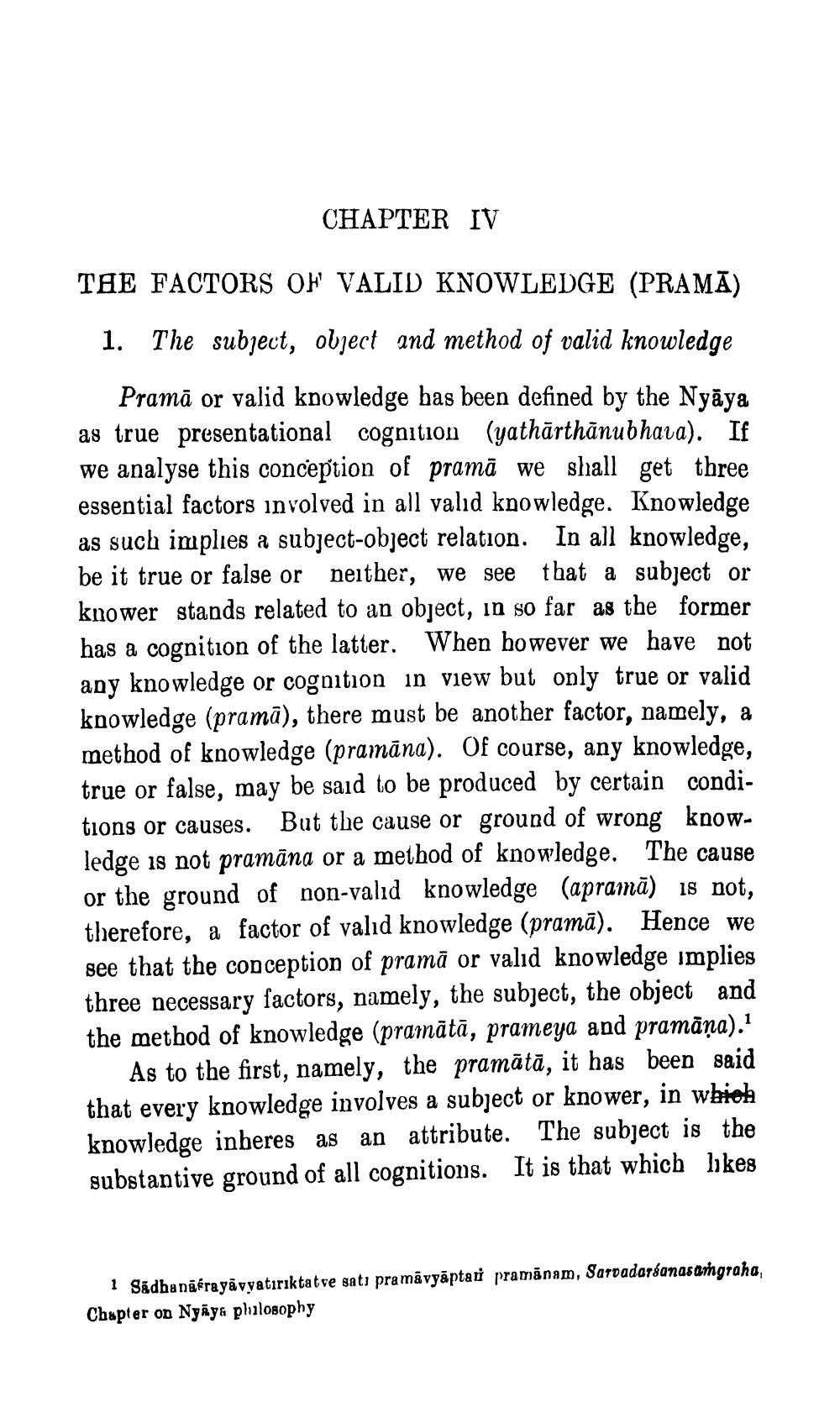________________
CHAPTER IV
THE FACTORS OF VALID KNOWLEDGE (PRAMĀ)
1. The subject, object and method of valid knowledge
Pramā or valid knowledge has been defined by the Nyāya as true presentational cognition (yathārthānubhava). If we analyse this conception of pramā we shall get three essential factors involved in all valid kpowledge. Knowledge as such implies a subject-object relation. In all knowledge, be it true or false or neither, we see that a subject or knower stands related to an object, in so far as the former has a cognition of the latter. When however we have not any knowledge or cognition in view but only true or valid knowledge (pramā), there must be another factor, namely, a method of knowledge (pramāna). Of course, any knowledge, true or false, may be said to be produced by certain conditions or causes. But the cause or ground of wrong knowledge is not pramāna or a method of knowledge. The cause or the ground of non-valid knowledge (apramā) is not, therefore, a factor of valıd knowledge (pramā). Hence we see that the conception of pramā or valid knowledge implies three necessary factors, namely, the subject, the object and the method of knowledge (pramātā, prameya and pramāņa).
As to the first, namely, the pramātā, it has been said that every knowledge involves a subject or knower, in whiol knowledge inberes as an attribute. The subject is the substantive ground of all cognitions. It is that which likes
1 Sádbanāfrayāvyatırıktatve sati pramävyāptari pramānam, Sarvadarśanasangraha, Chapter on NyĀya philosophy




